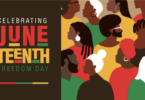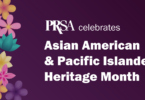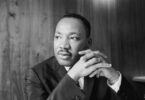PRSA is offering the following resources during Diversity, Equity and Inclusion Month.
As Hispanic Heritage Month shares a vibrant tapestry of Latino culture, history and achievements, it’s the perfect time to shine a spotlight on the incredible contributions of Latina communicators and entrepreneurs.
Maria Rodriguez, Vanguard Communications’ president and CEO, and Brigitta Toruño, CEO and founder of UNO Translations and Communications, are two Hispanic leaders with deeply rooted connections to their cultural identities. Their backgrounds have profoundly impacted their careers; both women choose to use the power of diversity, equity and inclusion to make strides in their respective fields.
In this interview, we learn about the influence of their role models, the evolving landscape of the workforce in relation to cultural diversity and the challenges that arise during the absence of cultural understanding.
Maria and Brigitta’s inspiring narratives serve as a testament to the ongoing impact of cultural diversity in the professional world. Their strong commitment to inclusion, dedication to mentoring and efforts to bridge cultural gaps give young professionals a roadmap to thrive in an increasingly diverse workforce.
As we reflect on their experiences, we continue to learn how diversity can be the catalyst for cultural change. Their stories can help guide us toward a future where diverse perspectives define the workforce of tomorrow.
How do you navigate and embrace your cultural identity in your professional life?
Maria Rodriguez: I don’t know how to exist outside my culture. It’s at the core of who I am. I’m convinced it’s been foundational in my approach to developing communications campaigns. Having watched my parents struggle to raise their family in a country with different customs, traditions and primary language, I know how important it is to incorporate culture, language and identity into our work. It’s great to see our profession finally embrace diversity, equity and inclusion as tenets of communications. Gratefully, we’ve tried to do that from day one.
Brigitta Toruño: I fully embrace the fact that I am the daughter of an Argentine father and an Ecuadorian mother. My cultural identity has driven my professional life. I was so impacted by being my parents’ interpreter at a young age that I knew I wanted to work with the Spanish language in some way. Little did I know that my path, which included starting a translation unit at a Fortune 500 company, would lead me to my passion — creating a language translation company.
This has afforded me the opportunity to help immigrant children that are their parents’ interpreters, by offering interpreters for their parents in schools. It also has allowed organizations to grow their global imprint by offering language translation in over 250 languages.
How do you see the future of the workforce in terms of its evolution with cultural diversity?
MR: As the country’s population continues to diversify more, the workforce will undoubtedly grow in diversity as well. When I first started working after graduating from college, I didn’t encounter many people of color in my work, even though many of the campaigns I worked on were intended to reach diverse populations. Many years later, it’s wonderful to walk into meetings and networking events and see people of diverse backgrounds. That’s how we all broaden our perspectives and find so many shared experiences.
BT: I have high hopes for the future of the workforce and the younger generations that will be at the helm. There is now an awareness of diversity, equity and inclusion that was not present when I was growing up. Plus, there is an ever-increasing diverse population in most of our communities. There is, of course, a lot more awareness that must be instilled in all people, at all levels, and starting at a young age.
We are all one humanity; the interconnectedness that exists among us cannot be ignored. The successful leaders of the future will have an ease with embracing cultural diversity and making it a natural part of their organizations. My hope is that the generation of my grandchildren will experience that.
What challenges have you seen develop due to a lack of cultural diversity or understanding?
MR: I’ve seen many misses because the intended audience of a campaign or program wasn’t involved in the planning and production from the start. Word usage, translations, visuals, traditions, tone and many other aspects of life can be completely off base.
I recall counseling a client that we couldn’t merely swap out the actors on a campaign that featured a family enjoying a turkey dinner over Thanksgiving, because many Hispanic families don’t celebrate Thanksgiving and, even when they do, they might not do so with turkey. I know my family didn’t celebrate Thanksgiving until I came home from school in second grade begging my mom to make a turkey for Thanksgiving like all of my classmates. It’s important to have people of diverse backgrounds at the table and it’s even more important to seek input from the people you are trying to reach all along the way.
BT: A misunderstanding of cultural diversity leads to missed opportunities. If a leader in an organization is not educated in embracing cultural diversity, then that person will lack the vision to hire a diverse workforce. The loss of having a diverse workforce in that organization will be immense, because the chorus of voices will be flat as opposed to well rounded. This contributes to not having diverse C-suites in organizations. Human resources staff and business leaders overall can contribute by finding more diverse candidates for their organizations. I invite all of us to correct the missed opportunities to attract and hire more culturally diverse candidates.
What resources or support systems do you recommend young professionals utilize to leverage cultural diversity as an asset in their careers?
MR: Look for mentors and allies. Be sure to look beyond colleagues at work. People who share and understand your cultural background are important for building your confidence and seeing what’s possible. Is there a family member or a friend of a friend that you admire and respect? You can also join organizations that focus on your profession; it’s more than just becoming a member though.
The key is to get involved by joining a committee and attending networking events. You never know who you’ll meet or who you’ll observe that might make a huge difference in your life.
BT: The best approach for young professionals to leverage cultural diversity as an asset in their careers is simple: networking. It took me more than five years after I started my business to take networking seriously. I do not want others to make that mistake! Start attending professional networking groups while in college and continue doing so as you start your new job and throughout your career.
Building relationships is a basic foundational tool that will sustain you. The benefit works both ways — you offer to assist the people that you are meeting, and they will offer to assist you. To this day, the relationships that I built in the corporate world and throughout the lifespan of my business have been powerful, and I am so grateful for each and every one in my network.
Chantelle Polite is an assistant account executive at Vanguard Communications in Washington, D.C. She provides strategic communications planning counsel within a diversity, equity and inclusion framework to a mix of non-profit, association and government clients working on issues to create a more inclusive and equitable world. A longer version of this interview first appeared on the Vanguard website.
[Illustration credit: jakub krechowicz]






